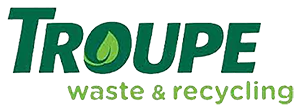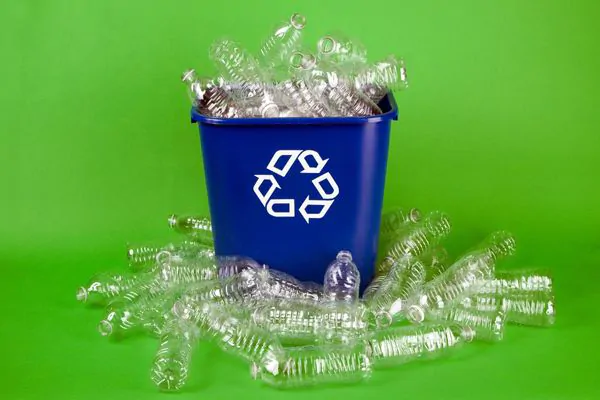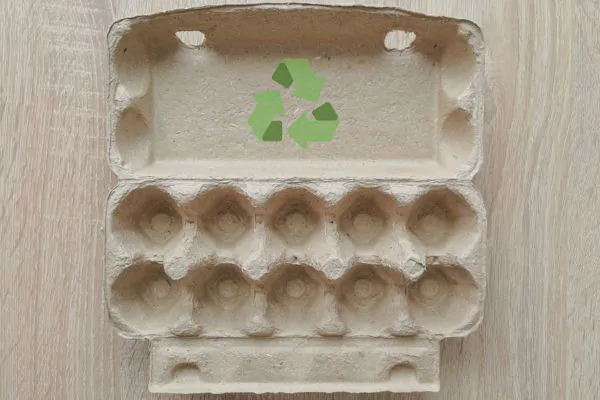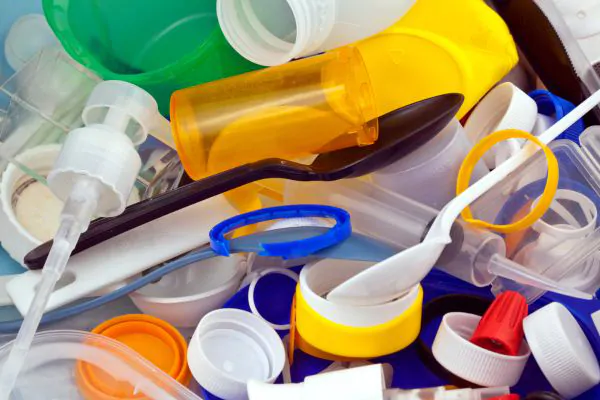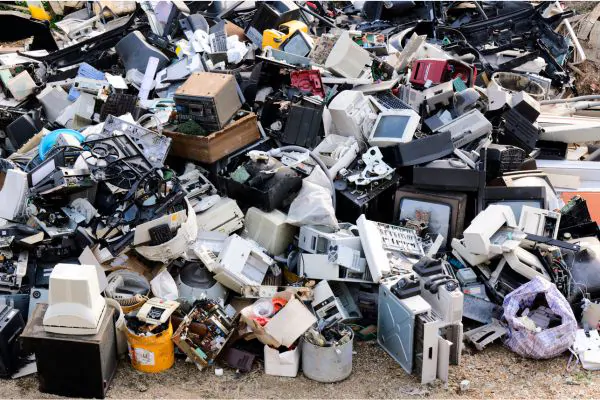How to Tell if A Plastic Item is Recyclable
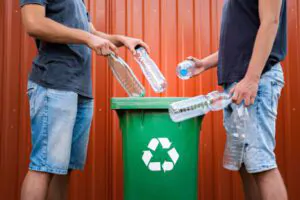
Learn how to tell if plastic is recyclable. Discover tips for identifying recyclable plastics by symbols, numbers, and local recycling guidelines. A major problem with plastic pollution is that it takes thousands of years to decompose. As a result, fish and wildlife become intoxicated, and toxic substances from plastic enter the food chain, posing a threat to human health. Hence, an urgent need to recycle plastics.
Care should be taken when recycling plastic items since not all can be recycled, and some may need to be recycled more than once. The plastic recycling symbols on products help us determine how many times we should recycle a specific product. For this reason, paying attention to recycling signs on plastic is essential.
You can identify the type of plastic through the so-called resin code. It is a number between one and seven enclosed in a tiny triangle made of arrows, frequently stamped on plastic products. However, a resin code in the product doesn’t guarantee that it is recyclable. The number inside the triangle matters because each number relates to a distinct type of plastic.
So, what are these numbers? Here’s what you need to know.
1. Polyethylene Terephthalate (PET or PETE)
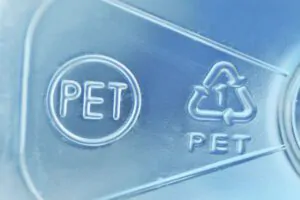
You probably held something made of this type of plastic today. PETE plastic is widely used to make bottles for soda, water, and other drinks, and it’s also used to make plastic peanut butter jars, cooking oil containers, and containers for other everyday food items.
Yes, PET or PETET products are recyclable. However, reusing PET plastic bottles is not recommended because PET should only be used once, and repeated use raises the possibility of bacterial and leaching growth. Also, removing or cleaning toxic substances is challenging, and carcinogens may also leak from PET. This is why watching the plastic recycling symbols in the product is essential.
2. High-Density Polyethylene (HDPE)
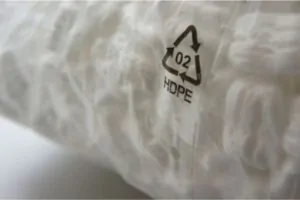
Plastics made of HDPE are also widely used. Some products made from HDPE are oil bottles, detergent containers, shampoo bottles, and milk jugs. This plastic is one of the safest to use and is entirely recyclable.
3. PVC (Polyvinyl Chloride)
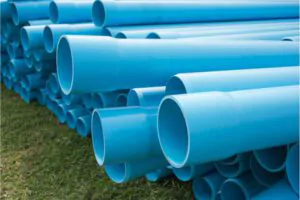
PVC is soft and flexible, which makes it a popular material for plastic food packaging. Products like kids’ toys, plastic trays, plastic tubing, and furniture are often made out of PVC. However, most consumer recyclers will not accept PVC products. Also, do not reuse PVC products, mainly when they are intended for use with food or for children. They contain harmful chemicals which leach during their whole life cycle.
4. LDPE (Low-Density Polyethylene)
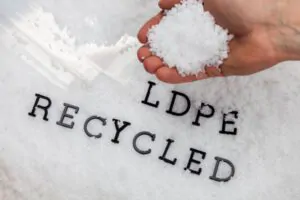
LDPE plastic is used to make a lot of plastic wrappings. Shrink wraps, garment bags for the dry cleaner, and other products also include LDPE. It’s also used to create shopping bags and bags for things like newspapers, sliced bread loaves, fresh fruit, and among others.
Though most plastic bags are not recyclable, several waste management services are finding ways to recycle plastic bags, given their harmful environmental effects.
Is this recyclable? Yes, LDPE products are safe to reuse and repurpose.
5. PP (Polypropylene)
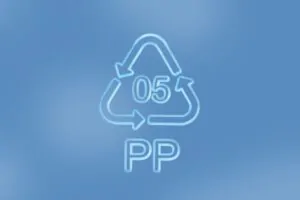
Margarine and yogurt containers, potato chip bags, cereal bags, and many other items are polypropylene plastic and made into carpet, rope, straws, and bottle caps. Polypropylene is recyclable, though many waste recycling companies refuse to accept it. Fortunately, reusing PP is also deemed safe.
Understanding PS (Polystyrene) and Its Recyclability
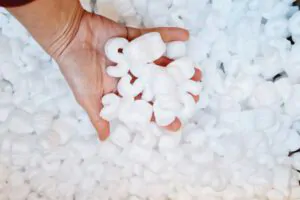
As much as possible, avoid polystyrene, which is used for packing peanuts, disposable Styrofoam cups, takeout containers, and other things.
An estimated 35% of the trash in US landfills is made up of polystyrene, which is typically non-recyclable. It quickly breaks, frequently found inside the stomach of marine animals and littering our beaches.
Do not reuse polystyrene. Chemicals found in polystyrene have been related to human health and reproductive system issues. Styrene, a potential human carcinogen, may leach into food goods through polystyrene (especially when heated in a microwave).
7. Polycarbonate, BPA, and Other Plastics
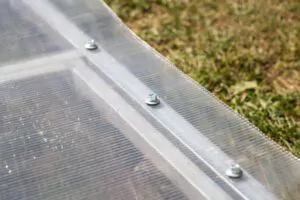
Polycarbonate products are widely used for protective gear, greenhouses, digital disks (CDs, Blu-ray, and DVDs), plastic lenses in eyewear, automotive components, exterior lighting fixtures, and medical services. These products are not recyclable.
In addition, Bisphenol A, or BPA, is a chemical produced in large-scale quantities primarily made for polycarbonate plastics. This chemical is found in products like bottle tops, epoxy resins that coat metal food cans, water bottles, water supply pipes, eyewear, and shatterproof windows. Chemicals may leak from BPA, and it is a known endocrine disruptor known as a xenoestrogen. Thus, avoid BPA products.
The “other plastics” refer to any plastic that doesn’t fall into one of the first six groups. Products stamped with seven frequently contain different plastic or other types that are difficult to recycle.
Start Your Recycling Efforts Today with Troupe Waste and Recycling!
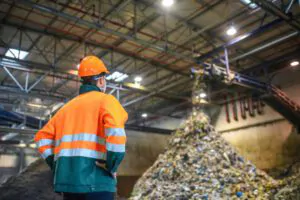
When we talk about recycling, no reliable waste management company in South Shore can offer top-notch services other than Troupe Waste and Recycling. We are a family-owned company that has been in business for more than ten years. Our services are always tailored to help individuals manage waste and protect the environment. Among our services are residential waste removal and commercial waste disposal. We also provide roll-off dumpsters in various sizes to best meet your waste removal needs.
Let us help you recycle your plastic products and dispose of your household waste. Call us today at 781-340-0030!
